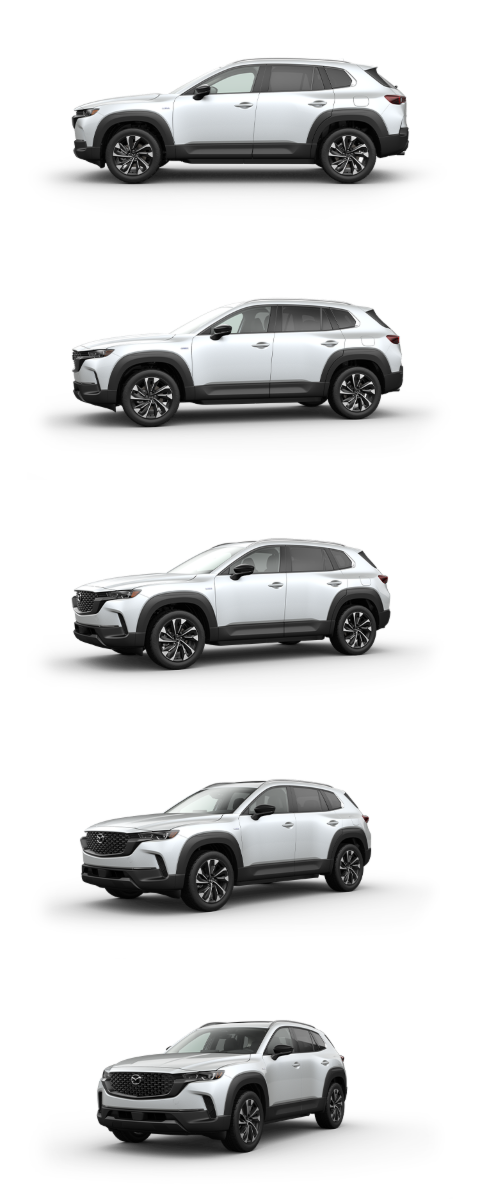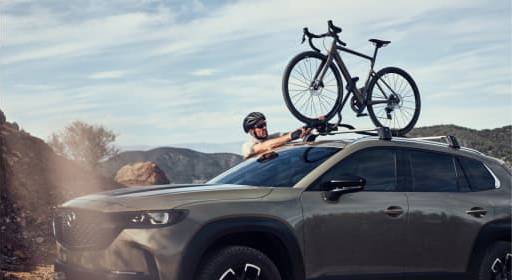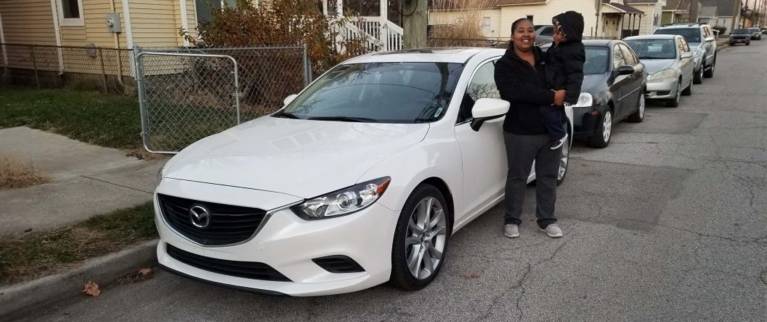What Is a Bill of Sale for a Car?
A bill of sale for a car serves as proof of transaction and documents pertinent information about the buyer, seller, and vehicle.

A bill of sale is a legal document that serves as proof of purchase and, in some cases, records a transfer of ownership — in this case, for a vehicle. While not required in all states, it’s generally in your best interests to have a bill of sale created when either selling or buying a vehicle, should issues arise after the transaction is complete. This is particularly true when buying a used car.
Let's take a closer look at everything you need to know about the bill of sale, including how to get or create your own bill of sale, what information is typically included, and why it’s a useful document to have and to keep.
Bill of sale vs. car title vs. registration
Before we get into the specifics surrounding a bill of sale, let’s take a quick moment to differentiate it from other important documents involved in the sale of a vehicle.
● Bill of sale: A document filled out by both the seller and buyer of a vehicle. Akin to a receipt, it serves as proof of purchase and includes pertinent information regarding both parties involved in the transaction as well as details about the vehicle being sold. In some states, the bill of sale can also serve as a transfer of ownership; in others, it may be required before a car title can be transferred; in still others, it’s not required at all. More on this below.
● Car title: A document that indicates legal ownership of a vehicle. If you still owe money on your car, the lienholder typically keeps the title until it is paid off. Car titles do not include information about, or conditions of, a sale. Car titles are issued by the Department of Motor Vehicles (DMV), and there are multiple types, including clean titles, rebuilt titles, and salvage titles.
● Registration: A document (exactly what type — card, sticker, paper, etc., — is state-dependent) that certifies a car can legally be driven on public roads. Used for tracking and assessing vehicles, car registration ties owner to vehicle to state. Registration requires renewal (how often is also state-dependent) and you must update your registration if you move to another state.
Do you need a bill of sale to sell or buy a vehicle?
Whether or not you’re required to have a bill of sale when buying or selling a vehicle depends on the state in which you live.
Check your state’s requirements to see:
● if your state requires a bill of sale and, if so, what must be included.
● if they have a specific bill of sale form (typically available for pickup at a DMV location, or via online download).
● whether or not the bill of sale needs to be notarized by a notary public.
These requirements may change over time, so if you haven’t bought or sold a car recently, it’s a good idea to check with DMV to determine if a bill of sale is required.
Bill of sale benefits
Even if it’s not required in your state, having a bill of sale for any car transaction can be beneficial for both buyer and seller. It can help protect both parties in cases of liability, such as car accidents, property damage, and insurance disputes.
For example, imagine that you sold your car to someone only to learn that, several weeks after the purchase, they damaged property with the vehicle. A bill of sale helps establish that you were not the owner of the vehicle at the time of the wreck and are therefore not liable to pay for the damage.
Should you write a bill of sale if you’re the buyer?
While it’s less common for a buyer to prepare a bill of sale, it’s perfectly acceptable to do so.
How to get a bill of sale form
Again, it’s best to check your state’s requirements regarding whether a standardized form is needed and/or what must be included for the bill of sale to be considered valid.
That, said, there are several common means of obtaining a bill of sale form, depending on your circumstances:
● Call your local DMV or visit their website to see if they have a bill of sale form available for pickup or online for free download.
● Download a vehicle bill of sale template from a reputable website or purchase one from an office supply store.
● Write your own bill of sale.
How to write a bill of sale for a car
There are a few important points to keep in mind if drafting your own bill of sale is a viable option within your state. When writing the bill of sale, be clear and concise, and use simple language that both parties can understand. Make sure you have all the necessary information as specified by your DMV, and make sure that both the buyer and the seller sign and date the document (in front of a notary public, if required). Keep a copy for your records.
What should a bill of sale for selling a car include?
Even though the exact information required for a bill of sale can vary by state or jurisdiction, the following are typically included:
Vehicle-related items
● Vehicle make, model, and year
● Vehicle identification number (VIN)
● License plate number
● Odometer reading at the time of sale
● Any relevant information about the vehicle's condition or history, such as accidents or repairs. (Note: Space to include this information may not be included on standard DMV Bill of Sale forms.)
Buyer/seller data
● Names and addresses of both the buyer and the seller
● Contact information for both parties, including phone numbers and email addresses
● Signatures of both the buyer and the seller. (if notarization is required, wait to sign the bill of sale until you’re in the presence of a notary public)
Transactional facts
● Date of the sale
● Purchase price and payment details, including any deposits or financing arrangements
● Any terms or conditions of the sale, such as warranties or guarantees
Selling or buying your next vehicle at a dealer
Keeping track of and filling out all the documentation needed to make a car sale official, including a bill of sale, can be daunting. Selling or trading in your vehicle through a dealer can alleviate this and other burdens.
If you want to sell or buy your vehicle without managing the minutiae yourself, your local Mazda dealer can help. Before you visit, you can get an estimate of your trade-in value online, explore our inventory of certified pre-owned vehicles, and build and price our new Mazda vehicles.
Buying or selling your vehicle doesn’t need to be stressful. Visit a Mazda dealer today to take a test drive and get behind the wheel of the vehicle that’s right for you.
This article is intended for general informational purposes only and is based on the latest competitive information available at the time of posting. Information herein is subject to change without notice and without Mazda incurring any obligations. Please review a variety of resources prior to making a purchasing decision. Visit Resource Center for more articles.
























